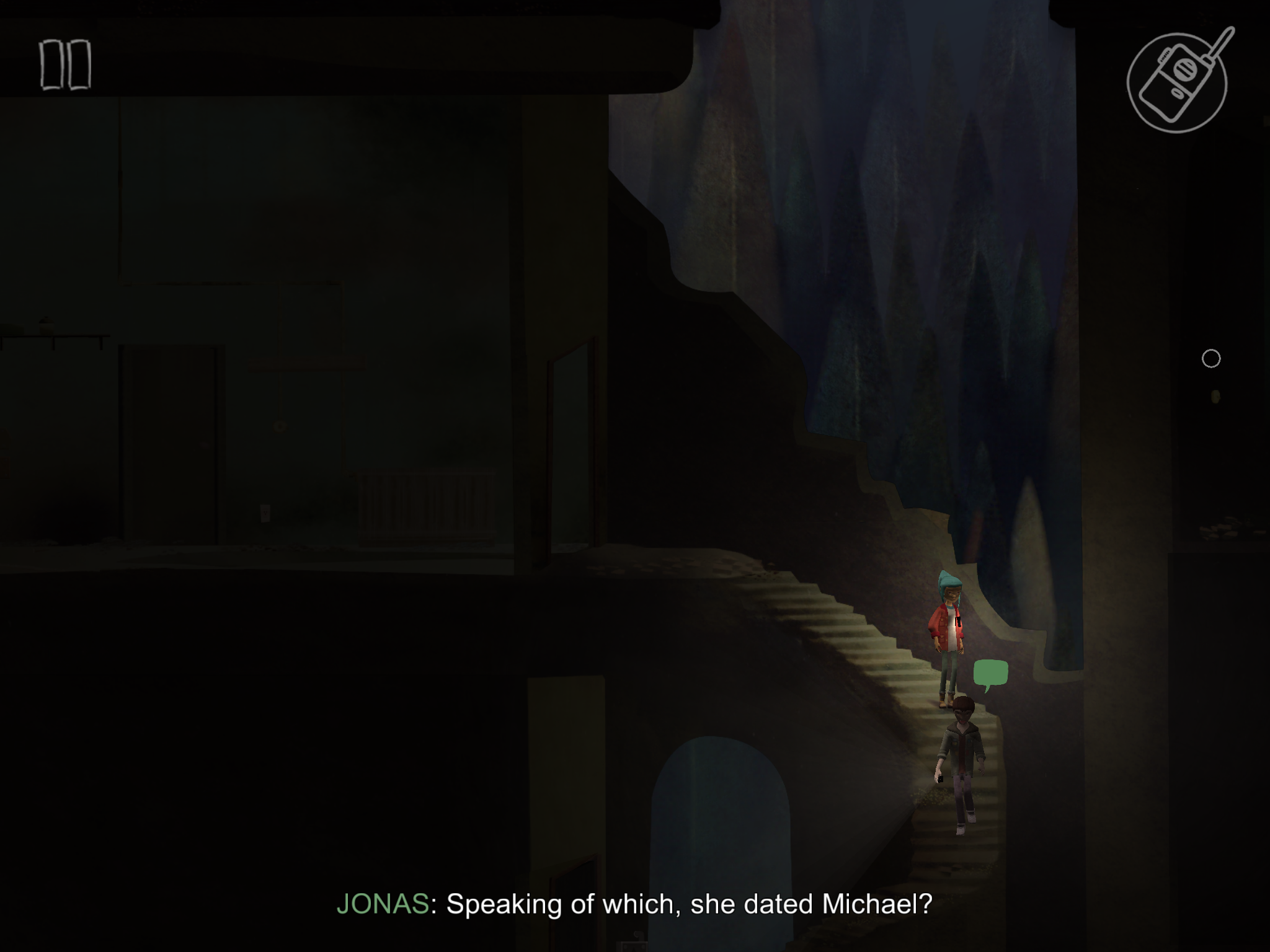The first time I played OXENFREE, an indie 2.5D horror adventure game newly on iOS by Night School Studios, I decided to play as honestly as possible.
Let me explain.
OXENFREE is centered around a group of teenagers, loosely led by main protagonist Alex, who snuck onto — and are trying to get off of — a nearly-abandoned island that harbors a dark extradimensional secret. Its two main plot-forwarding devices: a portable transistor radio and complex dialogue trees.
I was familiar with OXENFREE from when it was released onto PC and PS4 last year. Watching let’s-plays on various streaming channels, I noticed that players felt compelled to answer every dialogue tree and vocally react to every situation, even though not answering is just as valid of an answer. I always wondered what would happen if Alex responded to certain things with silence, and I knew that if I was in a similar situation there might not be words to expend for every little weird thing happening to me.
So I vowed to play as honestly as I could if I ever got the opportunity.
My first playthrough took a little under four hours to complete. In the process, I learned new things about the island, made new friends, made up with enemies, and developed a stronger bond with my new stepbrother, Jonas. I observed that every little action I took had an appreciable effect on the end of the game in ways I didn’t expect. And when I got to the end…
I started over.
The Stanley Parable is another game that messes with players’ expectations, not to mention timelines. Unlike OXENFREE, its metagame is centered around narrative dissonance and player avatar self-awareness rather than anything supernatural, but the result is the same: as The Stanley Parable’s loading screen likes to taunt you with, “The End is Never the End is Never the End is Never the End…”
Players of The Stanley Parable find themselves endlessly traversing down the same office corridors, doggedly searching for ways out or even simply ways to change the narrative in any way. Some playthroughs involve players simply standing in the first room for extensive periods of time, waiting for something to happen. Ultimately, though, they always end up back at the beginning.
This sense of feeling trapped in the events of the game permeates through later playthroughs of OXENFREE.
So, here’s what happens: After the first playthrough, you are shown the game’s credits. Alex is describing how everyone’s life turns out following the events on the island. In my playthrough, everyone got home safe, Ren (my best friend) and Nona (Clarissa’s best friend) are in a relationship, Clarissa (my enemy throughout the game and the host of the interdimensional submarine ghosts) is cool with me and Jonas and I are pretty close. Ren and I got into it a little bit (because of a funny moment where I chose Nona over either boy to go with me to get a mcguffin) but we’re still on good terms. Everyone either goes to college or stays in the little town we’re all in.
So Alex describes all of this and then… she’s talking about being late to the ferry. The game resets itself. Except — not?
As you play subsequent runs of OXENFREE you see hints that the ghosts remember you from earlier. They ask if you want to play another round. Everything points to you being just as trapped in time as they are, as they have to replay the whole of time over and over and over again. The end is never the end is never the end is never the end, after all, and the choices you make may only save everyone else, but you’ll play the game repeatedly.
On my second playthrough, I was not only able to save everyone and change the past to where my biological brother, Michael, didn’t die (therefore straining my relationship with Clarissa in the first place), I was able to break out of the loop entirely. A message I sent to myself over the radio and across time shook prelude-me so much that — based on my choice — Ren, Jonas and I didn’t end up going at all. Michael was still gone (maybe you can’t actually change the past after all), but I was free.
There are some interesting — and upsetting — ramifications to that. While, on one hand, the ghosts are only unleashed because you freed them with the radio, they only really ever wanted Clarissa — which you’ve now left with Nona on the island.
It’s an interesting game where choices both matter and ultimately don’t matter. If you don’t mind lots of incessant teenage talking, cartoon-ish visuals and the occasional gameplay bug like getting stuck on a ladder, OXENFREE is well worth your time.





